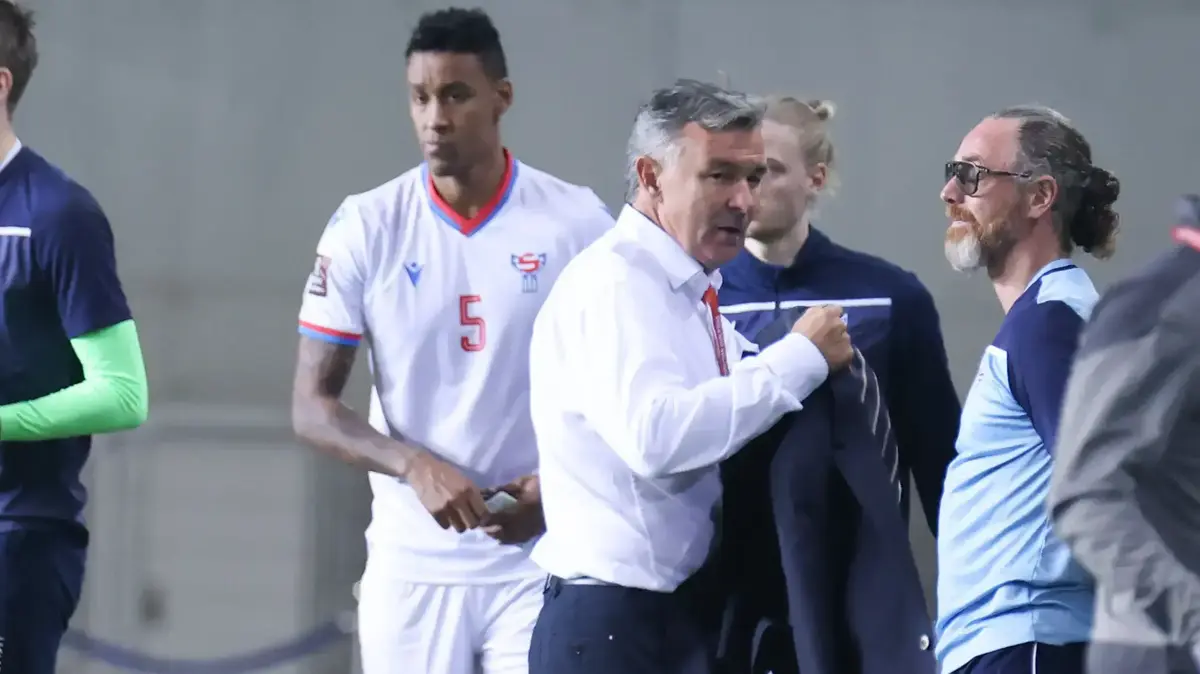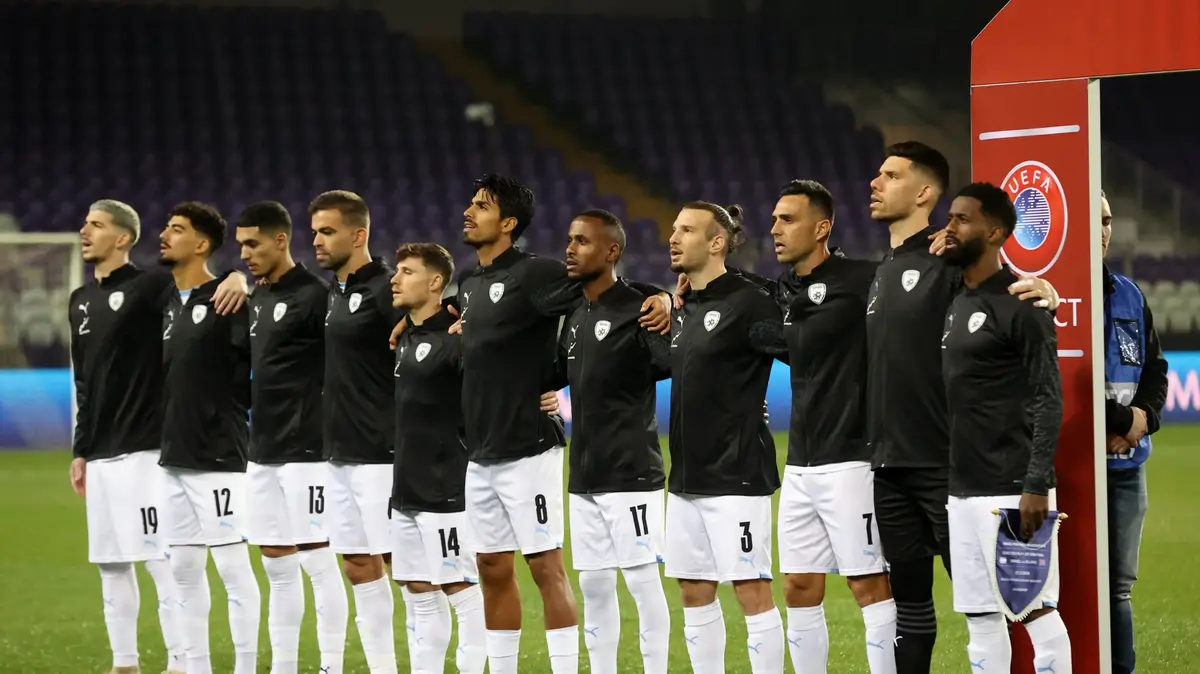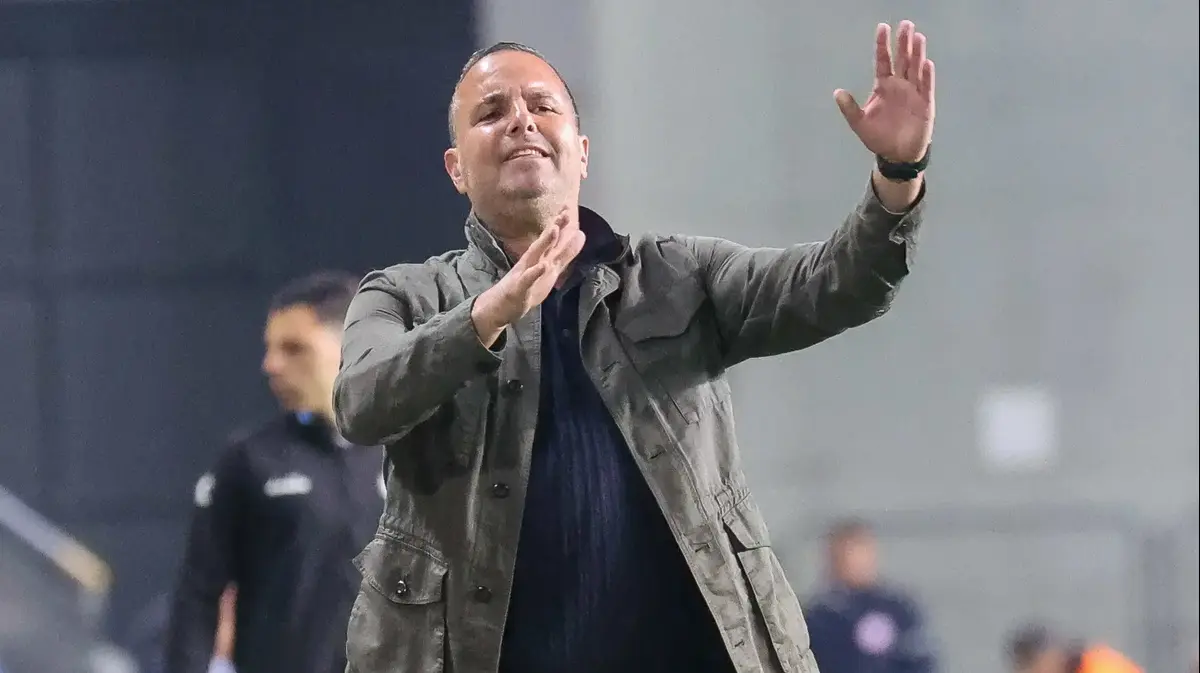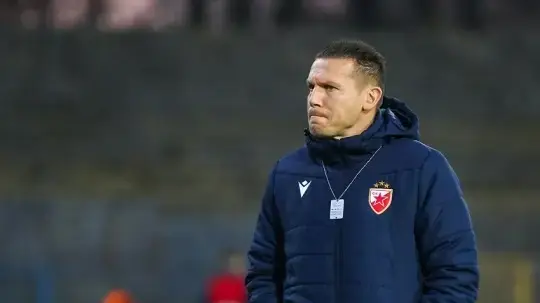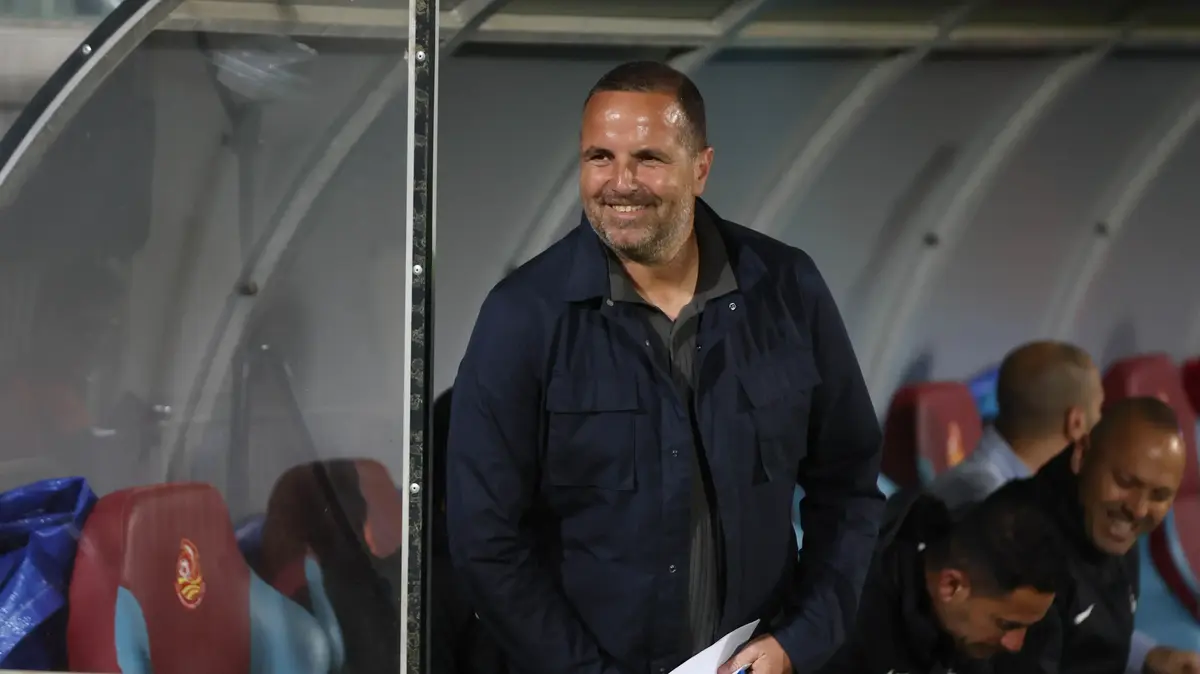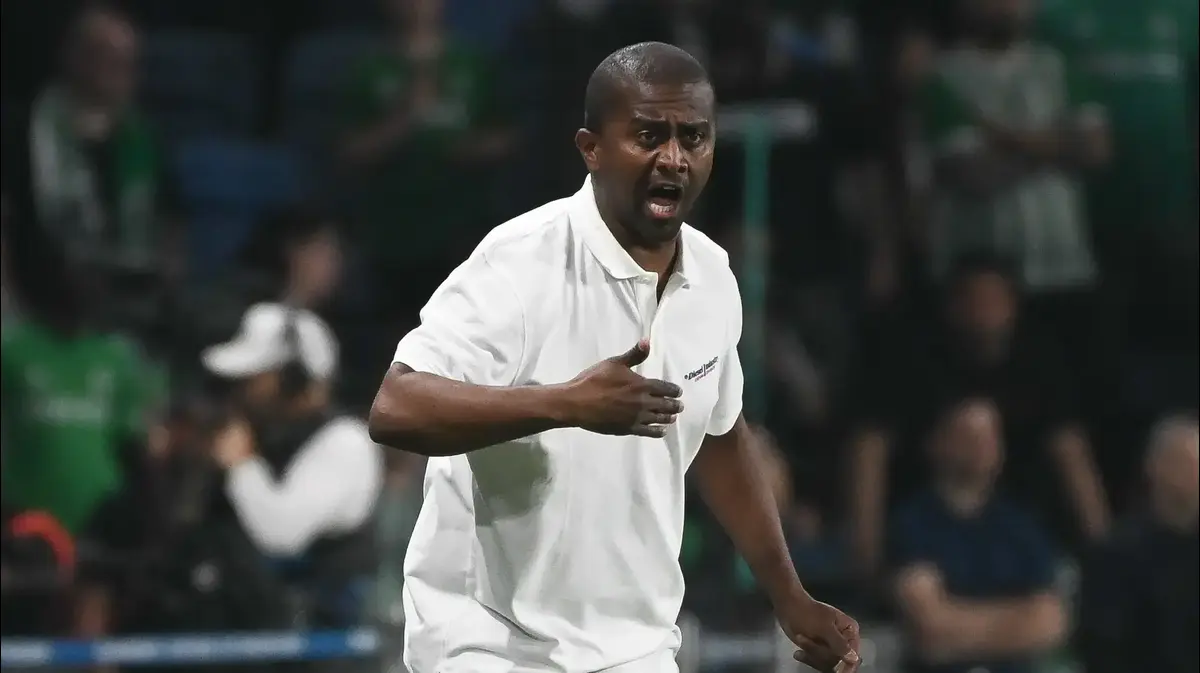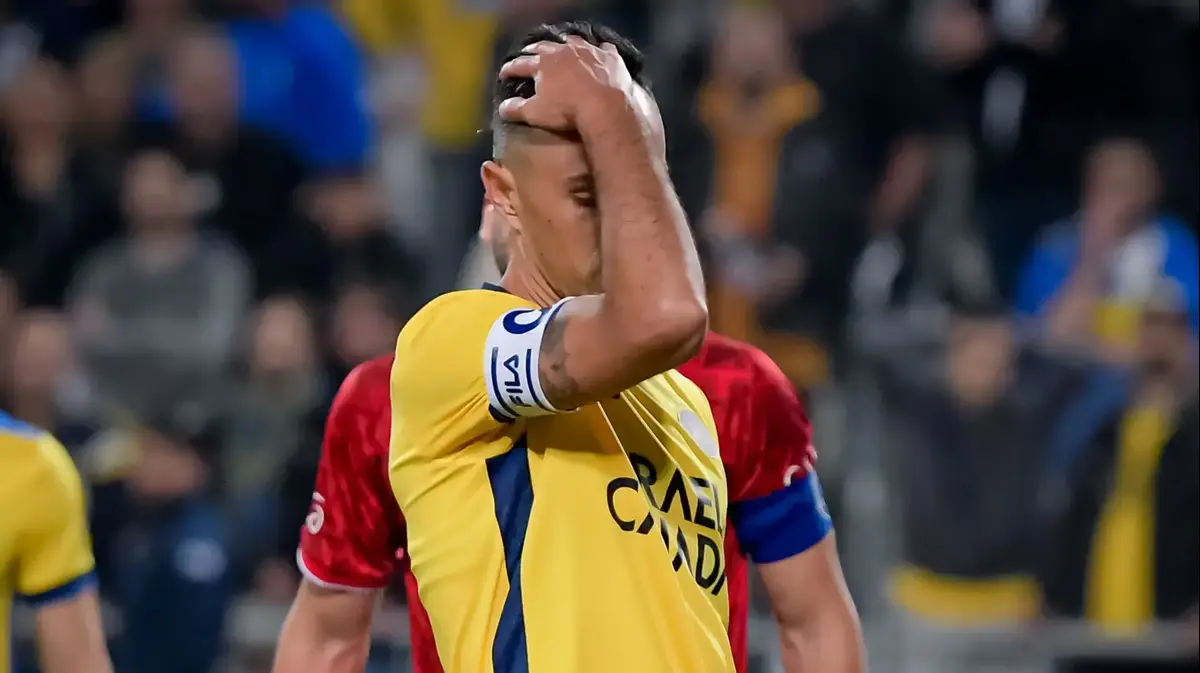sport
Israeli soccer
Israeli national teams
Now bring a coach: a summary of the Israeli national team's campaign
Depends on gold, lacks natural brakes, plays in an array that does not fit the players material and is enthusiastic about a third place achieved by grace.
Amikam concludes a campaign and emphasizes: Rotensteiner is an excellent professional.
As a technical manager
Tags
Israel's national team
Willie Rotensteiner
Ron Amikam
Tuesday, 16 November, 2021, 10:00 Updated: 10:02
Share on Facebook
Share on WhatsApp
Share on general
Share on general
Share on Twitter
Share on Email
0 comments
Summary: Israel - Faroe Islands 2: 3 (Sport 1)
Thierry Henry once said that "in football, you will always be judged by your last game". Willie Rotensteiner ate our heads off with the word "process", in whose last game yesterday the team looked like in Elisha Levy's last game as national team coach, and the whole "process" seemed almost ridiculous.
Yesterday it was a patched team, with players who did not dream of getting a summons to the squad, certainly not to start in the squad; With a roster that had a player less than required by the protocol (and if Beavers Natcho was unfit, then he had two less); With three brakes none of which are natural and still three brakes in a home game against the Faroe Islands; With awkward sections where we shut down and the Faroe Islands try to achieve equality and only one goal - out of three - from a football move unrelated to a stationary situation.
There is nothing more irritating than an Israeli football fan with a long memory - I've been watching the Israeli national team since 1973 - an ongoing stealth.
The third place celebration achieved mainly thanks to Scotland's victory in Austria (with us it only took a point), is equal to the celebration of the no - loss campaign by Abraham Grant in the 2006 World Cup qualifiers, also where Israel finished in third place before Ireland, but did not win any.
Here Israel took 12 of the 16 points against the weak and another 4 points out of 12 against its main rivals (like Austria), while Scotland took against them 8 and another 3 bonus from Denmark.
How can you celebrate third place with 21 mandatory goals, when Scotland finishes second, with 7 more points and only 7 mandatory goals?
In order to summarize a process, one must examine its results as well as its visibility, and everything in relation to the past.
The team is more entertaining?
Who?
6,800 spectators out of a possible 14,000 seats arrived yesterday for the Israeli national team's game.
In 1999, almost such an amount reached the away game in Limassol.
More on Walla!
Israel defeated the Faroe Islands 2: 3 and finished in third place at home
To the full article
Where has the "process" gone?
Rotensteiner (Photo: Danny Maron)
Much has been said about Willie Rotensteiner's fixation.
The worldview that justifies fixation speaks to the fact that a team must not be turned into a train station and it is difficult to move forward if you do not run a regular vehicle that will overcome the minority of meetings and training with the help of acquired coordination.
The thing is that the Israeli team is a cliché, if not more than that.
The Israeli team in the World Cup qualifying campaign usually played with 8 regular players: Marciano at the gate, Desa and Menachem Wing-Beck, Natcho and Dor Peretz midfielders, Manor Solomon in front of them, Zehavi and Davor on offense.
The turnover was in brakes, an abnormal turnover, a celebration of brakes.
In 10 games, which were spread over only 4 sessions (that is, a gathering that included 2-3 games at a time), 8 different brakes played in the team and another 5 were called to the roster, that is, 13 brakes in four sessions. The team finished the campaign with brakeman Uriel Degani who started his career as a right-back; Nir Bitton who started his career as a back-up midfielder; Hatem Alhamid who started his career as a striker. Players whose defense is not the basis of their development, who were shifted to brake positions mainly because of slowness and physique, who are all 30-plus (replaced by 34-year-old Eitan Tibi), who played in previous campaigns, are the ones who joined the squad at the end of the campaign yesterday.
The two goals conceded by Israel (again, from the Faroe Islands) were a direct result of poor coverage, poor ball handling, and arrogance. And the amazing thing is that despite this ongoing patchwork in the most problematic positions in Israeli football, there were 5 more brakes that were called up and did not play at all: Or Balorian, Uri Dahan, Eddie Gottlieb, Idan Nachmias and Shachar Phiben. Some are braking in their minds.
And despite the fixation in the lineup, 31 players played in this campaign and another 13 were called up and did not play at all. Compared to Elisha Levy's latest campaign, this is progress: 44 players who have been on the roster compared to 53 (39 played), but this is a 25 percent drop, not such a dramatic drop. Let's look at this, for example, against Denmark, the one that advanced to the World Cup from the Israeli home. She shared 34 players, four brand new in her last game yesterday against Scotland and a total of 41 players passed through her squad (with in the middle she had a Euro where she reached the semi-finals). The Danish consistency is impressive because in the end, it held a permanent roster for the important games - much more permanent than that of Rotensteiner - and rioted a bit only after securing its promotion.
Players summoned to the squad for Denmark's first meeting started playing gradually.
Almost no new players were called.
At Rotensteiner, a gathering of new players was called in, but most of them did not play and when they did, it was not gradually: they were immediately thrown into the deep water.
Aviv Avraham in the role of Beavers Natcho?
Why did Gadi Kinda travel all the way from Kansas (when his team will start the playoffs in 4 days) when a guy from Netanya - who has never been called up to the team before - starts in the squad (in a game held in Netanya)?
More on Walla!
The association is looking for a foreign coach, but does not rule out an Israeli option
To the full article
None of the brakes that opened yesterday grew as a brake.
Degani (Photo: Danny Maron)
Have we progressed at the game level as well? Some will say yes, because we are conquering more. The question is whether the team has been freed from its dependence on Eran Zehavi (the main conqueror in the last three campaigns), and the answer is "about". In the last campaign, Zahavi scored 8 goals out of the 20 she scored when he played, which is 40 percent of the team's goals. In the last Nations League campaign he scored 5 of 7 (71 percent) and in the Euro qualifying campaign he scored 11 of 16 (69 percent). There is a decline, and still 24 goals out of 43 (56 percent) is a lot.
The only progress recorded is the integration of Moanes Dabour in the numbers achieved by the team, with 6 goals in the last campaign in 6 different games. But it is not certain that we earned Dabour for the next campaign, due to the behavior of some of the audience towards him. Neither Manor Solomon nor Sean Weissman - 4 goals for both together - gave what they hoped for in this campaign. Dor burst with 3 goals alone, scoring almost like both. Based on three players scoring together 17 goals out of 23, it does not show a graph of progress.
The method of play - 3 brakes, two line players, a contact makes a game in the back link position, a mobile 50/50 player in front of him, a central contact who escapes to the wings and two strikers - failed. As long as Natcho was on the field, the team managed to get out of defense on offense in an organized and relatively quick passing game. When he got tired, a hole was created in the center of the field, the team relied on passing balls from defense to attack and when they pressed the brakes, this did not happen either, and the team was pushed to its hair. What was meant to be an array built for the speed and joining of Desa and Tuatha somewhere in the First League of Nations campaign, has become a constraint in the left-wing back position, sometimes in the form of slow players and sometimes players who have a hard time joining.
Only in the last game, with the end of Podgorano, did Rotensteiner dare to place a player who fits this lineup - a mobile line player who enters the field - rather than a defensive defender. Putting defenders in such a position could also have been done in line 4 on defense. In Israel's 0: 5 win over Austria in '99, Shlomo Sharaf played with Alon Hazan and Njuan Grave in the role of wingbacks.
More on Walla!
Rotensteiner: "Finishing in third place is a success, it was a great finish"
To the full article
The team has not yet been released from its dependence on Zahavi (Photo: Berni Ardov)
The phenomenon according to which football fans in Israel are enthusiastic about an offensive style, even at the expense of success, is not new.
The reality is that the successes of the Israeli team in the past came as a result of a much more controlled lineup.
The team qualified for the World Cup in 1970 when its main striker (Feingboim) was also a defender in the past and all its brakes were scattered in various places on the pitch;
She qualified for the Olympics in 1976 with a retiring striker (Moishik Schweizer) and only two distinct attacking players, with all rivals playing with 3 strikers;
It almost reached the 1990 World Cup with a lone win (in the first game) and 4 more draws, with Eli Ohana and Roni Rosenthal enveloping defensive-oriented players and Avraham Grant's "brilliant" campaign was achieved with more defensive players in essence and a very controlled game (which did not prevent regular mistakes). In defense) until defensive.
The point is that even in the pseudo-offensive orientation, not too many new offensive options have been tried.
Dolev Haziza, Liel Abda, Omer Atzili and even Sean Weissman received shards of opportunity, Hamudi Canaan and Gabi Kanikovsky did not, and Lior Rapalov was not called up at all.
We are ending this campaign without gaining almost any new attacking players.
Not a goalkeeper either.
You could say that Ophir Marciano has saved us in many cases from defeats that would have turned this campaign summary into dealing with unprecedented absorption peaks, but he has also absorbed a lot of goals that are not absorbed at an international level.
At 32, when he is not playing for his team at all, you wonder if it was not worth letting Daniel Peretz, who was picked from the young team without playing even a minute, get a chance in a game like yesterday, just to know if it's a future goalkeeper or another passing phenomenon.
I'm sure he would not have been worse off pushing the ball that Marciano headed to the center of the extension that led to the Peruvians' first goal.
Fragments of opportunity.
Weissman (Photo: Danny Maron)
Since Emanuel Sheffer in 1970, Edmund Shmilovich, Dovid Schweitzer, Jack Mansell, Yossele Mirmovich, S.G., Shlomo Sharaf, Richard Nielsen, Avraham Grant, Dror Katan, Eli Gutman, and Elisha Levy have not been able to bring Us to the World Cup.
Willie Rotensteiner also failed.
He did manage to restore the confidence of the players in the team, mold high standards of professionalism, and accurately address personal issues (the return of Eran Zehavi, the casino affair in Poland, the "bosses", the Mons Dabour wedding affair and his tweets affair), but he failed to reverse Selected for a good football team.
This is the difference between a base commander and a brigade commander: one makes the base a good place to stay and the other makes the soldiers winners.
Willy Rotensteiner is not a football coach, he is a technical director.
Hopefully the latest campaign has convinced all of us that we need a coach here.
Share on Facebook
Share on WhatsApp
Share on general
Share on general
Share on Twitter
Share on Email
0 comments

